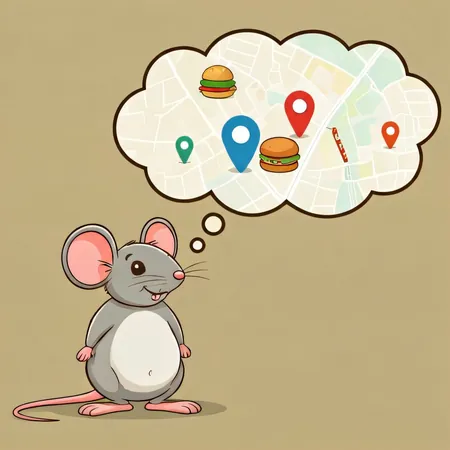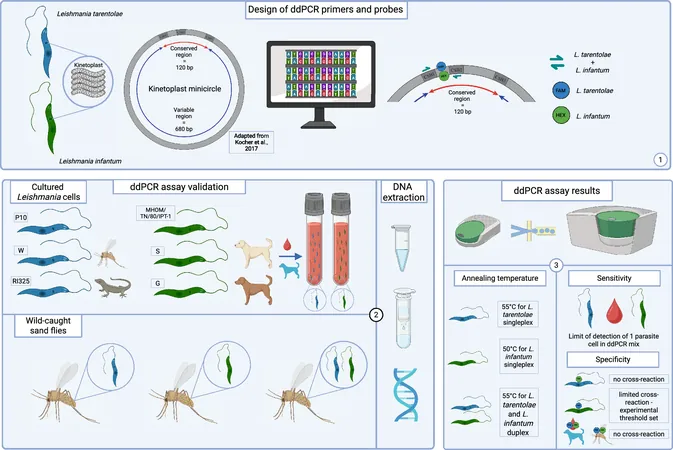
Unraveling the Brain's Memory Systems: The Hidden Force Behind Food Cravings and Weight Gain
2025-01-15
Author: Yu
Introduction
Can our memories truly dictate what we eat and how much? A groundbreaking study from the Monell Chemical Senses Center has answered this question with a definitive 'Yes.' Spearheaded by Monell Associate Member, Dr. Guillaume de Lartigue, this research has unveiled new insights into how the brain's memory systems can profoundly influence our eating behaviors and contribute to obesity.
Key Findings of the Study
Published in the esteemed journal *Nature Metabolism*, the study identifies a unique population of neurons within the mouse brain that encode memories related to sugar and fat. This revelation marks the first time researchers have linked food-specific memory systems to overeating and diet-induced obesity, offering a fresh perspective on dietary habits.
Dr. de Lartigue explained, "In our fast-paced world, we face a barrage of advertisements and stimuli that continuously remind us of indulgent food experiences. It’s astonishing to discover that we can pinpoint specific neurons in the hippocampus that not only facilitate memory formation for these foods but also drive our eating behavior. This link could have far-reaching consequences for body weight management and metabolic health."
The Role of Neurons in Food Memory
The researchers found that these neurons are critical for recalling where nutrient-rich foods are located, acting as a sort of "memory trace." When these neurons were silenced, the subjects exhibited a reduced ability to remember sugar-related experiences, leading to significantly lower sugar consumption and a halt in weight gain—even when subjected to a high-calorie diet.
What’s more, when these neurons were reactivated, the animals' food memories were enhanced, resulting in increased consumption. This crucial finding introduces two revolutionary concepts: that specific neurons in our brain store food-related memories and that these memories actively influence what we eat.
Implications for Weight Management
Dr. de Lartigue further commented, "While it has always been accepted that we remember pleasurable food experiences, many believed these memories wouldn’t impact our actual eating behaviors. It’s particularly surprising that by inhibiting these neurons, we can prevent weight gain even with calorie-dense diets high in fat and sugar."
Memory: The Overlooked Culprit in Weight Gain
The study highlighted how memory has often been underestimated in discussions about food intake. It demonstrated a direct connection between memory and metabolism, suggesting that some brain circuits could be vital in our understanding of metabolic health.
In experiments, the deletion of sugar-responsive neurons within the hippocampus disrupted memory while simultaneously decreasing sugar intake and protecting against weight gain—even in subjects exposed to high-sugar diets. This emphasizes a crucial correlation between specific brain functions and metabolic outcomes, which has been largely ignored in obesity research.
Mingxin Yang, the study's lead author, noted, "Memory systems in the hippocampus have evolved to help us locate food that is vital for survival. In today's world, where food is plentiful followed by incessant cues, these memory pathways might inadvertently lead to overeating, propelling obesity rates."
Precision of Food-Related Memories
Another significant aspect of this study is the specificity of food-related memories encoded by neurons. They discovered that sugar-responsive neurons solely impact sugar memory and consumption, while fat-responsive neurons exclusively relate to fat intake. Interestingly, these neurons do not interfere with memories unrelated to food, highlighting the brain's precise programming in linking food cues to behavior.
Dr. de Lartigue remarked, "The depth of this specificity is astonishing. It reflects how our brains are finely attuned to distinguish between different nutrient sources available in our environment."
New Hope for Obesity Treatment
These groundbreaking findings open new avenues for tackling overeating and obesity. By specifically targeting the hippocampal memory circuits responsible for food-related memories, researchers may be able to disrupt the mental triggers that lead to unhealthy dietary choices.
Dr. de Lartigue emphasized, "These neurons play a pivotal role in connecting sensory cues to food intake. Their influence over both memory and metabolism positions them as promising candidates in the fight against obesity in our modern food-saturated society."
In collaboration with colleagues from the University of Pennsylvania and the University of Southern California, this study paves the way for transformative strategies that could help reshape the landscape of obesity treatment, addressing not just the physical but also the cognitive aspects of our eating habits.
Stay tuned as scientists continue to explore the intricate relationship between memory and diet, potentially revolutionizing how we understand and manage body weight in the future!



 Brasil (PT)
Brasil (PT)
 Canada (EN)
Canada (EN)
 Chile (ES)
Chile (ES)
 Česko (CS)
Česko (CS)
 대한민국 (KO)
대한민국 (KO)
 España (ES)
España (ES)
 France (FR)
France (FR)
 Hong Kong (EN)
Hong Kong (EN)
 Italia (IT)
Italia (IT)
 日本 (JA)
日本 (JA)
 Magyarország (HU)
Magyarország (HU)
 Norge (NO)
Norge (NO)
 Polska (PL)
Polska (PL)
 Schweiz (DE)
Schweiz (DE)
 Singapore (EN)
Singapore (EN)
 Sverige (SV)
Sverige (SV)
 Suomi (FI)
Suomi (FI)
 Türkiye (TR)
Türkiye (TR)
 الإمارات العربية المتحدة (AR)
الإمارات العربية المتحدة (AR)